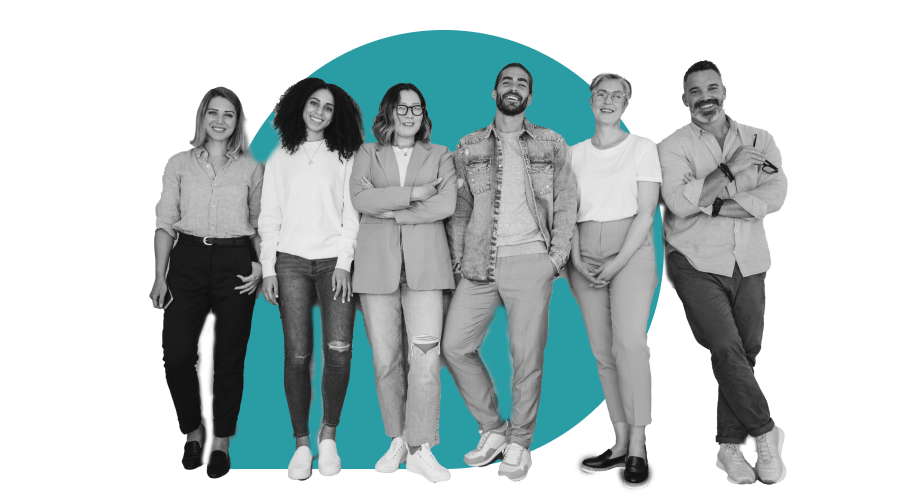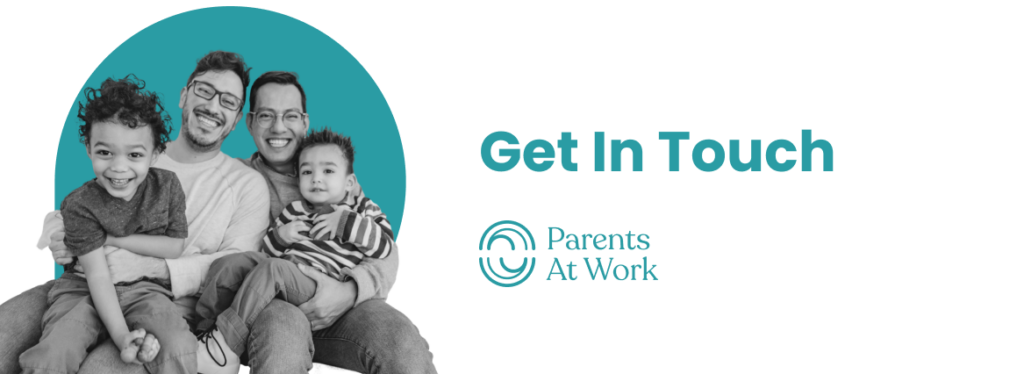
“People are seeing the benefits in a different light; before it was compliance, something to do, more on trend.”
Gina Bass, Transport for NSW
Gina Bass has seen some dramatic transformations in how large employers approach parental leave, wellbeing and inclusion at work, since she had a child 12 years ago.
She has also been at the forefront of such change – leading on policy design at some of the biggest employers in the country, pioneering on workplace policies, especially on paid parental leave.
Now at Transport for NSW, where she is Director – Inclusion, Diversity and Wellbeing, Bass has had the word ‘diversity’ in her role for over a decade, including at Lendlease and Deloitte.
We spoke to Bass to learn more about her career in the space and how to effect change in such a role, thanks to our partnership with Family Friendly Workplaces.
In her current role at Transport for NSW, Bass notes the evolution of the space around employee wellbeing – with the word ‘wellbeing’ being a critical part of her job title.
She said she’s increasingly seeing wellbeing included in diversity and inclusion roles, including her own.
“It’s a logical link. It helps people understand that wellbeing comes from feeling like you’re included and respected,” she tells Women’s Agenda.
“And now, with the psychosocial hazards of work that a lot of organisations are seeking to implement, that has added another lens around the fact it’s not just a nice thing to do, you actually have to provide people with a positive duty of care. You have to look after them, make sure they are well. And the best way to do that is through creating an inclusive workplace.
“People are seeing the benefits in a different light; before it was compliance, something to do, more on trend.”
At Transport for NSW, in addition to what Bass outlines above, the wellbeing focus includes having a wide range of leave options available for team members, including domestic and family violence leave and community service leave, as well as varying forms of flexible work options. On the lighter side, the employer offers access to professional networks (including a recreation club) as well as additional options for gym discounts and regular health and wellbeing workshops.
Transport for NSW also recently partnered with not-for-profit Challenge DV, to train its People and Culture Business Partners in Domestic and Family Violence and Abuse awareness.
Like parental leave, Bass believes getting a strong spotlight on wellbeing has been a slow burn, but it’s fast growing momentum.
“I always remind myself and my team that with anything important such as workplace mental wellbeing, to stay the course, don’t give up and be brave,” she recently shared on a LinkedIn post.
She believes wellbeing needs to be infused into an organisation’s culture and leadership to be sustainable.
She says data can be a powerful tool in informing and refining a wellbeing strategy. Especially in determining the difference between introducing a new initiative because it’s “on trend” or seems like the “right thing to do” and introducing it because it will have an impact.
“If you can use data to make good decisions about your workforce and what they really need, then that is so powerful. And I still feel that’s a piece that has changed but could evolve further,” she says.
“Data allows you to consider not just what needs to be fixed, it also enables you to uncover the root cause of the problem, which could be a policy or a process or a system or whatever it is – and getting in and fixing that part first.
“That will then support the end result. That will make the difference. And that’s where we’re going to get more sustainable change in the D&I space.”
From there, she says flipping the conversation to having a stronger focus on inclusion and respect is where there’s still a lot of work to be done in Australia.
One thing that has changed significantly in large Australian workplaces since Bass had a child and found her career options limited with a previous employer – is now about who can access paid parental leave and when and how they can take it.
Bass has been at the forefront of some of this change, being instrumental in introducing industry-leading paid parental leave programs and policies at both Lendlease and Deloitte.
She’s seen policies evolve extensively in the 12 years since she had a child, with the best employers in the space offering flexibility, and supporting people before, during and after they take the leave, among other things.
“They’re making it gender neutral, offering encouragement and support and taking account of people’s different circumstances. Leaders are role modelling the leave,” she says.
“And from where I am now, more than a decade into working in the D&I space, it’s great to see how more men are taking paid parental leave.
She says part of addressing policy change is about understanding the business case, and also “getting ahead of and anticipating all the questions that people would ask,” she says.
Enabling flexibility and choice in policies aids their success and how they are used – as does making things as simple as possible.
“It’s in realising that sometimes pregnancies don’t go to plan, and considering the additional pieces that can be added into the policy for someone who needs to take time off before a designated period, for someone in a same-sex relationship, or for a husband that needs to take time off to support his wife who might be experiencing postnatal depression,” she says.
“All those types of little things have been really good because people have got a solid baseline now and they’re tweaking things to make a real difference for people.”
Bass sees some of the changes that have been made over the past decade on family-friendly policies, and notes how different things may have been for her personally 12 years ago when the eight weeks of maternity leave she was offered at her then employer was half paid up front and the rest paid once you returned to work. Bass didn’t return to the role after having her baby, taking up an opportunity to work flexibly at Lendlease instead – and beginning her career in diversity and inclusion.
She is now at a different stage of balancing work and care, with a teenager and managing care for older relatives.
“I wish I had the support that’s available now, when I had a baby. But my job now is that I get to help change these things for other people,” she says.
Transport for NSW have recently launched a Carers and Parents Network. The organisation also utilises the Parents At Work ‘Work + Family Hub’ for their families and is certified as a Family Friendly Workplace.
Our expert partner, Challenge DV, provides policy advice and workplace training, Find out more about their workplace programs here.
Written and Published by Women’s Agenda


